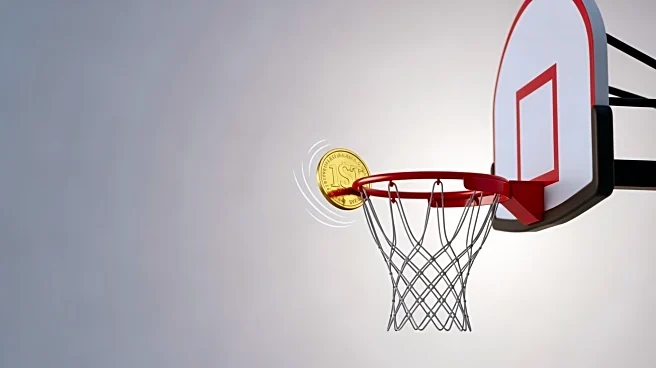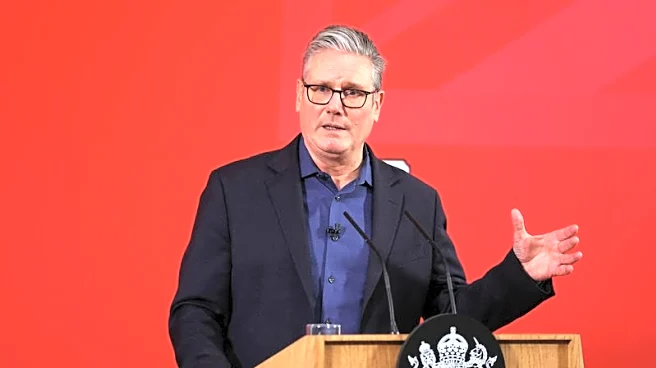What's Happening?
Former WNBA star Liz Cambage has publicly encouraged current players to explore additional revenue streams beyond their league salaries. Cambage, who left the Los Angeles Sparks in 2022, has reportedly
earned more from her activities on the subscription-based platform OnlyFans than from her professional basketball career. In a recent interview with TMZ Sports, Cambage emphasized the need for players to secure extra income, citing the relatively low salaries in the WNBA. She advised players to leverage their personalities and embrace opportunities that allow them to express themselves and earn more. The discussion around WNBA salaries has gained traction, particularly with the entry of the 2024 rookie class, including Caitlin Clark, who reportedly earns more from endorsements than her league salary. Minnesota Lynx star Napheesa Collier has been vocal about the need to address salary issues, challenging WNBA Commissioner Cathy Engelbert on the matter.
Why It's Important?
The call for WNBA players to seek additional income sources highlights ongoing concerns about compensation in women's professional sports. Cambage's comments underscore the financial challenges faced by athletes in the league, where salaries are often lower compared to their male counterparts in the NBA. This situation has broader implications for gender equity in sports, as it reflects the disparities in earnings and opportunities available to female athletes. The push for higher salaries and better financial opportunities could lead to significant changes in league policies and collective bargaining agreements, potentially improving the economic landscape for current and future players. As more players explore alternative income avenues, it may also influence the league's approach to marketing and player endorsements.
What's Next?
The WNBA and its players' union are expected to engage in negotiations to address salary concerns and improve compensation structures. These discussions could lead to changes in the league's financial policies, aiming to provide better support and opportunities for players. Stakeholders, including team owners, sponsors, and the league administration, may need to consider innovative solutions to enhance player earnings and attract top talent. The outcome of these negotiations could set a precedent for other women's sports leagues facing similar challenges, potentially influencing broader industry standards for athlete compensation.
Beyond the Headlines
The conversation around WNBA salaries and alternative income sources raises important questions about the role of personal branding and social media in modern sports. As players increasingly turn to platforms like OnlyFans, it highlights the evolving nature of athlete endorsements and the potential for digital platforms to offer lucrative opportunities. This trend may encourage athletes to cultivate their personal brands and engage with fans in new ways, potentially reshaping the dynamics of sports marketing and fan interaction. Additionally, the focus on player earnings could spark discussions about the ethical considerations of monetizing personal content and the impact on athletes' public personas.










